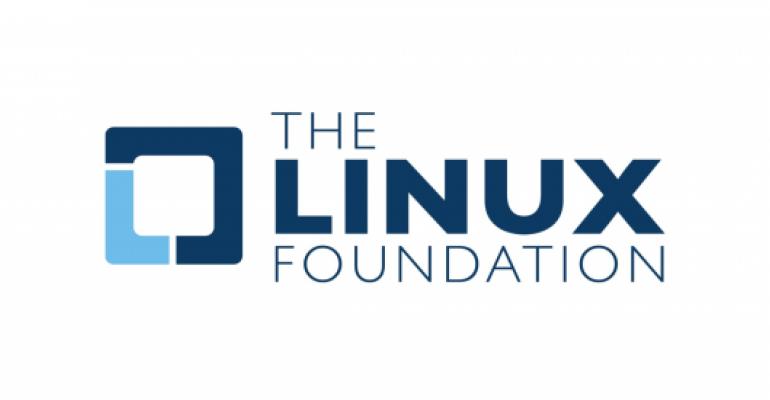The JS Foundation is now a Linux Foundation Project. The news came on Monday, first as an announcement on the Linux Foundation's website, and then announced from the podium at the first day of Oscon Europe in London. "JS," of course, stands for "JavaScript," and as any web developer will tell you, it's an essential part of almost all modern websites. Its use isn't entirely web based, however. For instance, it's used in PDF documents.
"We've been supporting a lot more than jQuery for a long time," Kris Borchers, the JS Foundation's executive director and former head of the JQuery Foundation, explained in his Oscon keynote address, "so the rebrand is to better reflect that. This also signals this effort to start creating a center of gravity for open source JavaScript."
This should be welcome news to developers who work with JavaScript, for while the programming language has proven to be more than reliable enough, it's not always easy to get up and running. Hopefully, under this umbrella order will be brought to the hodgepodge collection of open-source technologies currently used by JavaScript developers.
“The Linux Foundation more than any other industry organization excels at serving the needs of developers,” Borchers said. “Developers rely on a growing portfolio of open-source technologies that are progressing at an ever faster rate. Being a part of the Linux Foundation’s portfolio of technologies will enable cross-project collaboration that best serves as many developers as possible, as well as the entire JavaScript ecosystem.”
The JS Foundation starts with seven projects in its Mentorship Program:
Appium: An open source Node.js server for automating native, mobile web, and hybrid applications on iOS, Android and the Universal Windows Platform. Appium expands the JS Foundation’s current test framework and tooling offerings into device automation.
Interledger.js: Enables instant payments and micropayments in any currency and across many payment networks using the Interledger Protocol. The Foundation says it hopes this project will cause developers to consider new ways to think about web payments and to look for ways to simplify and standardize those processes.
JerryScript: A lightweight, fully-featured JavaScript engine for Internet of Things devices. The Foundation says this project is just the beginning of its efforts to support IoT projects and developers.
"JavaScript represents huge potential beyond the web," said Youngyoon Kim, a vice president at Samsung's Software R&D Center. "We've already shown how JerryScript, a lightweight JavaScript Engine developed first by Samsung, can enable high efficiency devices across the Internet of Things such as smartwatches, other wearables and tiny things. We invite JavaScript developers, regardless of their background and vertical expertise, to join us in both the JavaScript and IoT ecosystems.”
Mocha: A feature-rich JavaScript testing framework that provides a command-line interface for Node.js as well as in-browser testing capabilities. The Foundation brings this under its mentorship, alongside Lodash, to ensure that many JavaScript application cornerstones will be available and supported long into the future.
Moment.js: A lightweight JavaScript date library for parsing, validating, manipulating, and formatting dates, which also provides time zone support to JavaScript through Moment Timezone. By supporting Moment.js alongside projects like Globalize and Jed, the JS Foundation hopes to foster collaboration for internationalization and formatting.
Node-RED: A flow-based programming environment built on Node.js, aimed at creating event-driven applications that can easily integrate APIs and services. According to the Foundation, this project will be a major factor in its efforts to support a full end-to-end JavaScript ecosystem.
"As part of this launch, we are pleased to be contributing Node-RED to the JS Foundation," said Angel Diaz, vice president of cloud technology and architecture at IBM. "Node-RED is a rapidly growing environment that has reached widespread adoption among the IoT community by establishing a broad ecosystem of flows and nodes that are shared by the community at large. With community contribution, Node-RED will set a course to innovate and iterate IoT applications rapidly and with greater agility right in the cloud."
webpack: A bundler for modules, primarily used to bundle JavaScript files for use in a browser. It's also capable of transforming, bundling, or packaging many other resources and assets.
More good news is that the JS Foundation won't be taking a walled garden approach, but will be working closely with standards organizations, including W3C, WHATWG, and ECMA TC39, and the Node.js Foundation. The Foundation also has plenty of support. The list of founding members includes Bocoup, IBM, Ripple, Sauce Labs, Sense Tecnic Systems, SitePen, StackPath, University of Westminster, WebsiteSetup and Samsung.




